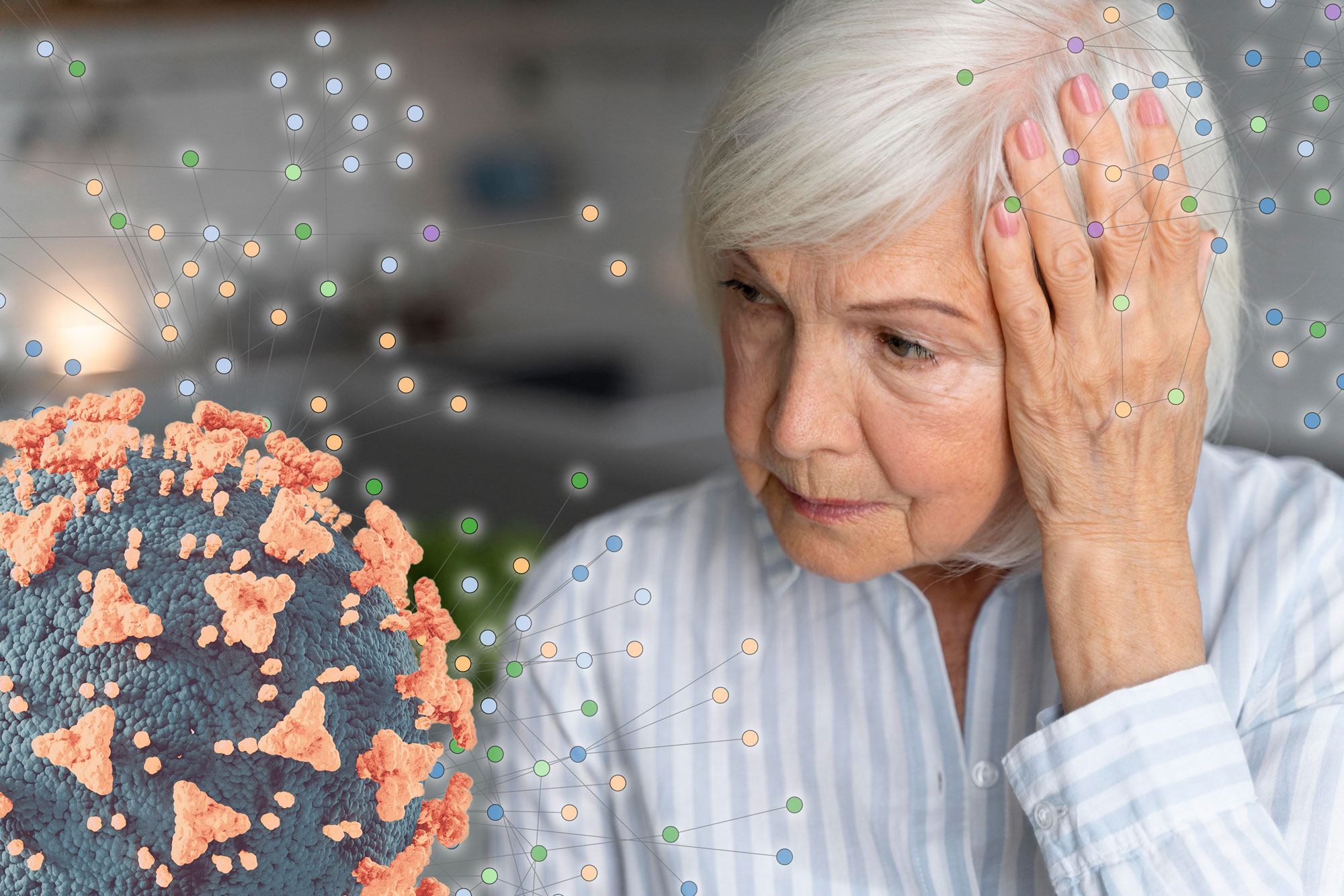COMMUTE – Artificial intelligence helps to assess the risk of dementia and neurodegeneration following infection with a coronavirus
Fraunhofer SCAI coordinates the COMMUTE project, backed by a grant from the European Commission. Over the next four years, an interdisciplinary team of top-tier experts will explore whether COVID-19 infections increase the risk of acquiring neurodegenerative diseases. An innovative AI-driven system is being developed to provide tailored risk assessments for individuals who have recovered from COVID-19.

Does a SARS-CoV-2 infection elevate the risk of dementia? This pressing medical question forms the crux of the EU-funded COMMUTE project, which stands for "COMmorbidity Mechanisms UTilized in HealthcarE." The project aims to unravel the underlying mechanisms linking COVID-19 infections with neurodegenerative diseases such as Alzheimer's and Parkinson's.
Prof. Dr. Martin Hofmann-Apitius, the project's lead and Head of the Department of Bioinformatics at Fraunhofer SCAI, explains, "Early in the pandemic, we saw Parkinson-like symptoms in COVID-19 patients; reports published later suggest a neuroinflammatory response to SARS-CoV-2 infections in some patients. These initial observations have led us to a comprehensive study into the relationship between COVID-19 and neurodegeneration."
In the wake of the COVID pandemic, increasing evidence points to a possible causal relationship between viral infection and the onset of neurodegenerative diseases. Identifying and understanding potential links is crucial for pinpointing high-risk groups and forging new paths in disease prevention.
The COMMUTE project employs a dual approach to this complex issue:
- A data-driven strategy leveraging AI to analyze existing patient data. The goal is to assess whether COVID-19 infection contributes to a heightened risk of neurodegenerative diseases, particularly Alzheimer's and Parkinson.
- A hypothesis-driven method that converts vast amounts of scientific literature into "Knowledge Graphs." Modern AI methods are then used to test many disease hypotheses in parallel. This approach facilitates systematic testing of numerous disease hypotheses in cellular test systems, including experiments with brain organoids derived from stem cells.
These twin strategies aim to foster a dynamic synergy between computational and biological research methods. A key aspect of this research includes exploring the potential of already existing medications to treat dementia or the onset of neurodegeneration processes potentially triggered by COVID-19. To this end, the project collaborates with REMEDI4ALL, which provides a unique platform for drug repurposing.
The insights gained from COMMUTE are set to revolutionize personalized healthcare, exemplified by a patient-oriented AI recommendation system for dementia and neurodegeneration risk assessment.
Given the profound implications of predicting increased health risks, COMMUTE also tackles its findings' ethical and legal dimensions, incorporating input from patient advocacy groups.
Funded with 7.3 million euros by the European Commission, the project runs from December 2023 to November 2027. Fraunhofer SCAI inaugurated the project with its first consortium meeting in December 2023 at the Bonn-Aachen International Center for Information Technology.

